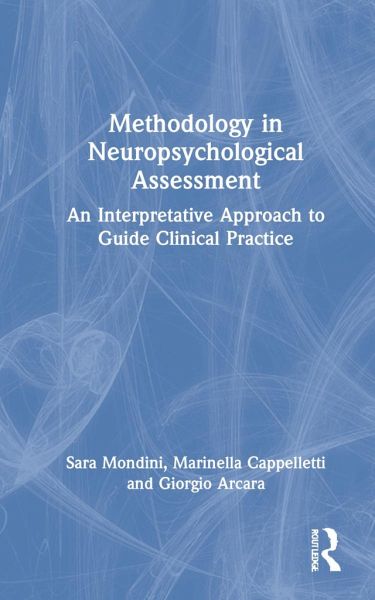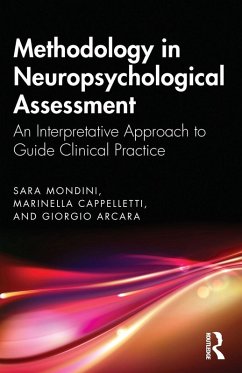
Methodology in Neuropsychological Assessment
An Interpretative Approach to Guide Clinical Practice
Versandkostenfrei!
Versandfertig in 1-2 Wochen
94,99 €
inkl. MwSt.
Weitere Ausgaben:

PAYBACK Punkte
47 °P sammeln!
This text provides practical and methodological guidance for neuropsychologists working with people with brain lesions or brain dysfunctions. The textbook underlines the principles that can be used to guide clinicians in recognizing and interpreting signs and symptoms while enabling a complete assessment through a series of steps.













